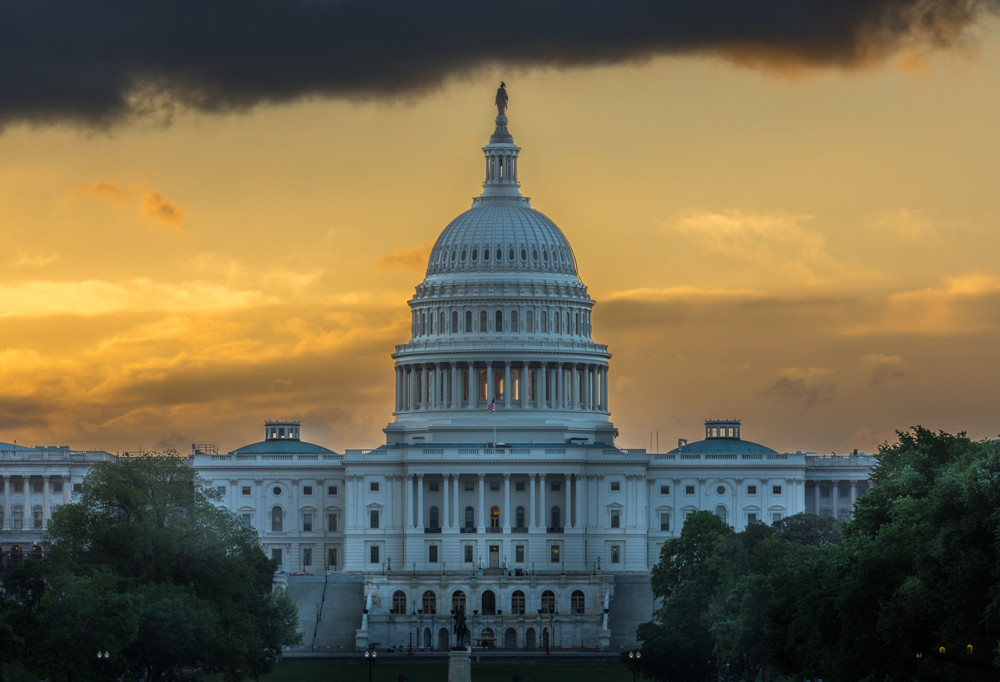By Michael Macagnone
CQ-Roll Call
WWR Article Summary (tl;dr) Bob Lawless, a law professor at the University of Illinois say that consumers usually file for bankruptcy after they’ve hit rock bottom, not in the middle of a crisis. With that in mind, the courts are bracing for increased filings in the near future.
WASHINGTON
Despite record unemployment numbers, consumer bankruptcies declined last month by more than 30% compared with last year, according to American Bankruptcy Institute data. That’s because federal courts have largely closed and consumers usually file for bankruptcy after they’ve hit rock bottom, not in the middle of a crisis, said Bob Lawless, a law professor at the University of Illinois.
“People are probably going to use consumer credit to smooth over the problems they have right now,” he said. “It doesn’t make sense to file bankruptcy if you are just going to continue to pile up debts.”
If Congress fails to act soon, bankruptcy courts could be overwhelmed by a record number of newly jobless consumers looking to shed crushing debts, said Raymond Kluender, an economist at the Harvard Business School.
More than 20 million people filed for unemployment in April. Some research indicates there could be 10 or more bankruptcy cases for each additional 1,000 job losses, meaning 200,000 people could eventually end up filing for bankruptcy based on April’s numbers alone, Kluender said. If the economic crisis continues, bankruptcy filings could eclipse those sparked by the Great Recession, which peaked at more than 1.5 million filings in 2010.
“The actual capacity of the court system to process and adjudicate bankruptcy filings is quite fixed, and we have to start to think about what 20 or 30 million unemployed is going to mean,” Kluender said.
Earlier this month, the Administrative Office of U.S. Courts requested more than $36 million in additional appropriations. That would include funds to turn 14 temporary bankruptcy judgeships into permanent spots and to extend deadlines so courts can handle an expected increased caseload.
“The economic impact of the COVID-19 pandemic in some respects exceeds that of the 2008 Great Recession,” the office said in a letter to congressional leaders.
Congress has so far stayed quiet on the issue, outside of a proposal by Democratic Sens. Elizabeth Warren of Massachusetts and Sherrod Brown of Ohio. The pair last month called for the next coronavirus relief package to include changes that would make “consumer bankruptcy a more accessible, affordable option.”
In a letter posted to Medium, the two senators called for lowering filing fees, reducing paperwork, getting rid of in-person requirements, and allowing student loan debt to be discharged in bankruptcy proceedings.
But Senate Majority Leader Mitch McConnell questioned the need for another pandemic relief package.
“We’re basically assessing what we’ve done already,” he told reporters Monday, saying he was in “constant communication” with the White House.
“If we decide to go forward, we’ll go forward together. And in the meantime, I don’t think we have yet felt the urgency of acting immediately. That time could develop, but I don’t think it has yet.”
A Warren aide said the pair would work with the Democrat-controlled House to include some of their provisions in a bill currently under negotiation, such as payment suspensions, eviction moratoriums and credit score protections.
Those sort of changes may allow more people to file for bankruptcy, said Boston University economics professor Tal Gross. An economics study Gross, Kluender and others published last September found that hiked filing fees resulting from 2005 bankruptcy law revisions may have resulted in more than 1 million fewer bankruptcies than expected over a decade.
That added difficulty in discharging debt may have contributed to the slow recovery from the 2008 financial crisis. Gross said that kind of harm can extend for years, pointing out that bankruptcies from the crisis did not peak until 2010.
“If households are completely overwhelmed by debt as a result of this, it is going to affect their lives for years and as a result that is going to have an effect on the economy,” he said.
But if Congress ends up lowering filing fees and making other bankruptcy law changes to help consumers get out of debt, it could encourage creditors to raise interest rates to cover the new uncertainty, Gross said. His report last year also found that creditors ended up lowering interest rates on credit cards and other products after the 2005 legislative changes yielded fewer bankruptcy filings.
Kluender pointed out that the bankruptcy system acts as a backstop for other parts of the economy. If policies like the Paycheck Protection Program and short-term relief checks can keep businesses afloat, and their workers employed, Congress may keep stress off the bankruptcy courts.
“The policy changes will dictate how many of the small businesses end up filing for bankruptcies and the number of consumers who end up in the financial distress that need to file bankruptcy,” Kluender said.
Among corporations, Chapter 11 bankruptcies increased nationwide in both March and April compared to 2019, according to data provided by the American Bankruptcy Institute.
Lawless said the economic downturn has put substantial pressure on businesses in poor financial health. Those without the funds to weather the crisis may be dragged into court, he said.
“Corporate debtors are different,” he said. “Their creditors are at their doorstep and they are the ones that are going to show up in bankruptcy court now.”
He pointed out it is hard to know how many businesses would have folded in April if Congress had not passed the Paycheck Protection Program as part of the coronavirus relief. Additionally, he said bankruptcies don’t tell the whole story, as many financially distressed firms will stop hiring long before they hit the courthouse.
___
Distributed by Tribune Content Agency, LLC.














































































































































































































































































































































































